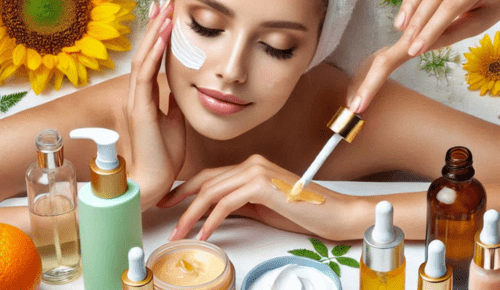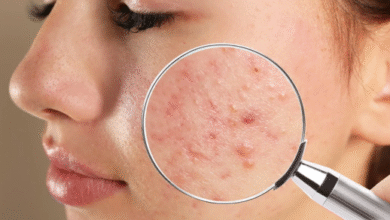How to Transition Your Skincare Routine from Summer to Winter

As the seasons change, so do your skin’s needs. Transitioning from summer to winter requires adjustments to your skincare routine to combat colder temperatures, drier air, and the effects of indoor heating. Here’s a guide to keeping your skin healthy, hydrated, and glowing throughout the winter months.
Understand Seasonal Skin Changes
Winter weather brings unique challenges for your skin:
- Dryness: Cold air and indoor heating reduce humidity, stripping your skin of moisture.
- Sensitivity: Harsh winds can irritate your skin, causing redness and flakiness.
- Dullness: Reduced blood circulation during colder months may lead to a lackluster complexion.
Switch to a Gentle Cleanser
The foaming cleansers that worked well in the summer may be too harsh for winter. Opt for a gentle, hydrating cleanser that removes impurities without stripping your skin’s natural oils. Look for ingredients like:
- Aloe Vera: Soothes irritation.
- Ceramides: Strengthen the skin barrier.
- Glycerin: Attracts and retains moisture.
Upgrade Your Moisturizer
Winter calls for a richer moisturizer to combat dryness and strengthen your skin barrier. Consider:
- Creams over Lotions: Creams provide deeper hydration and protection.
- Occlusive Ingredients: Look for shea butter, lanolin, or petrolatum to seal in moisture.
- Hyaluronic Acid: Retains water and keeps skin plump.
Add a Facial Oil
Facial oils are a great addition to your winter routine for extra nourishment. They can be layered over your moisturizer to lock in hydration. Popular options include:
- Argan Oil: Non-greasy and deeply moisturizing.
- Rosehip Oil: Rich in antioxidants and vitamin A.
- Squalane: Lightweight and suitable for all skin types.
Incorporate Hydrating Serums
Boost your hydration with a serum rich in humectants. Hyaluronic acid and niacinamide are excellent choices for attracting and retaining moisture. Use the serum after cleansing and before applying your moisturizer.
Exfoliate Mindfully
While exfoliation is essential for removing dead skin cells and promoting cell turnover, overdoing it can exacerbate dryness in winter. Reduce the frequency to 1-2 times per week and choose gentle exfoliants like:
- Lactic Acid: Hydrating and mild.
- Enzyme Exfoliants: Derived from fruit enzymes, they gently dissolve dead skin.
Protect Your Skin from the Sun
Just because it’s winter doesn’t mean you can skip sunscreen. UV rays are present year-round and can still damage your skin. Use a broad-spectrum sunscreen with SPF 30 or higher daily.
Don’t Forget Your Lips and Hands
Lips and hands are particularly vulnerable to winter dryness. Keep them protected by:
- Using Lip Balm: Choose a balm with beeswax, shea butter, or lanolin.
- Applying Hand Cream: Opt for rich, non-greasy formulas with glycerin or ceramides.
- Wearing Gloves: Protect your hands from cold air and wind.
Humidify Your Environment
Combat the drying effects of indoor heating by using a humidifier. It adds moisture to the air, preventing your skin from becoming excessively dry.
Stay Hydrated and Nourished
Internal hydration and a nutrient-rich diet can also improve your skin’s health. Drink plenty of water and consume foods rich in:
- Omega-3 Fatty Acids: Found in salmon, walnuts, and flaxseeds.
- Vitamin E: Present in almonds, sunflower seeds, and spinach.
- Antioxidants: Abundant in berries, citrus fruits, and green tea.
Tailor Your Routine to Your Skin Type
- Dry Skin: Focus on layering hydration with creams and oils.
- Oily Skin: Use non-comedogenic, lightweight moisturizers.
- Sensitive Skin: Choose fragrance-free, hypoallergenic products to avoid irritation.
Transitioning your skincare routine from summer to winter is essential for maintaining healthy, resilient skin. By focusing on hydration, protection, and nourishment, you can adapt to the challenges of colder weather and keep your skin glowing all season long. Make these changes gradually and listen to your skin’s needs for the best results. Use quality cosmetics and perfumes like Lattafa.



